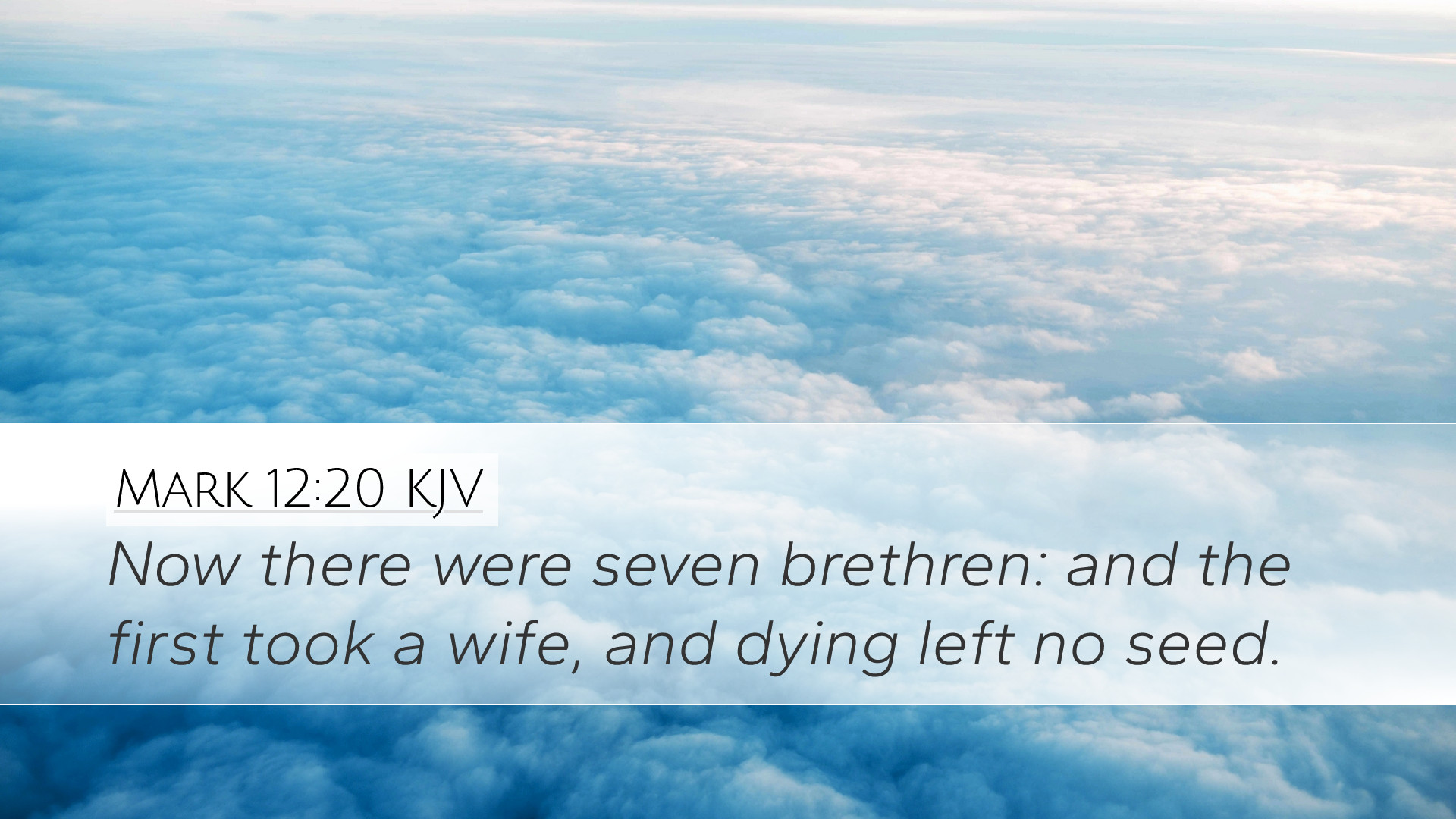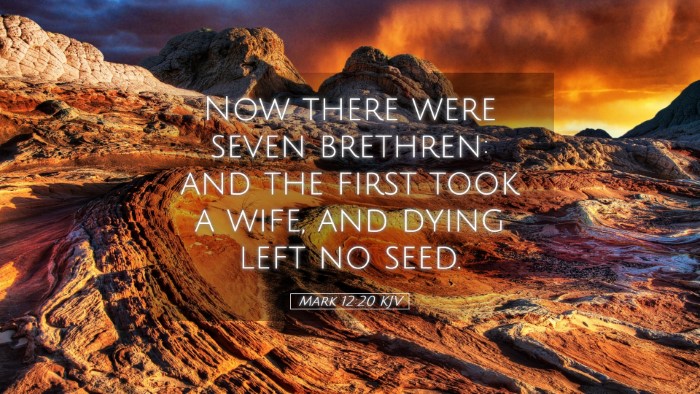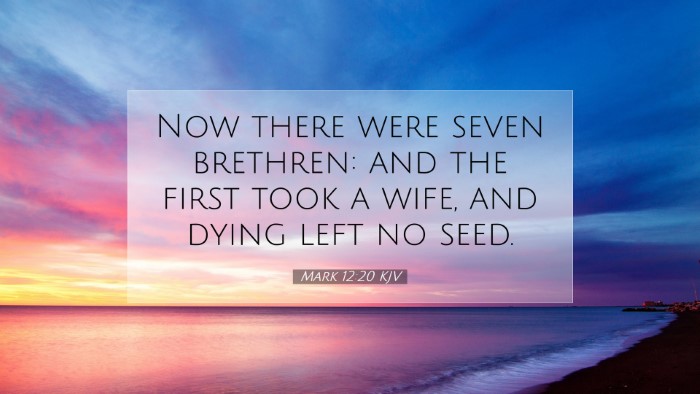Commentary on Mark 12:20
Mark 12:20 narrates Jesus' interaction with the Sadducees regarding the resurrection, particularly focusing on the practice of levirate marriage as prescribed in the Jewish law. This passage invites deep theological reflection on issues of resurrection, marriage, and the nature of life after death.
Context of the Passage
In the preceding verses, Jesus has been teaching in the Temple, and the religious leaders, particularly the Sadducees, challenge Him with a hypothetical scenario aimed at discrediting the doctrine of resurrection. The Sadducees, who deny the resurrection, attempt to entrap Jesus using the law of Moses, arguing that if a man dies and leaves no children, his brother must marry the widow to preserve the family line.
Insights from Public Domain Commentaries
Matthew Henry's Commentary
Henry emphasizes the teaching aspect of the encounter. He notes that the Sadducees cleverly constructed their query but were misguided in their understanding of both the law and the afterlife. He clarifies that the levirate marriage command, found in Deuteronomy 25:5-10, was indeed a serious obligation among the Israelites but does not translate to the eternal state where God's kingdom rules. Matthew Henry asserts:
"They made a mock at the resurrection; but our blessed Lord, in answering their question, makes it clear that they understood neither the Scriptures nor the power of God."
Moreover, Henry points out that the resurrection transcends earthly institutions such as marriage, highlighting that in heaven, believers will be like the angels, free from such earthly ties.
Albert Barnes' Notes on the Bible
Barnes offers a detailed examination of the Sadducees' erroneous assumptions about eternal life. He asserts that they believed the resurrection could not align with society's conventions, including marriage. Barnes states:
"The Sadducees supposed that in the resurrection, men would continue to live in the same way as they did on earth; and hence, they felt the absurdity of their case.”
He underscores that Jesus' response is profound, indicating that the nature of life in the resurrection is not merely an extension of earthly existence but rather a transformed reality, implying that the concerns tied to earthly marriage practices are irrelevant in the divine realm.
Adam Clarke's Commentary
Clarke elaborates on the theological implications of Jesus' rebuttal to the Sadducees. He brings forth the fact that they are representatives of those who cling to rigid interpretations of the law without embracing its spiritual depth. Clarke writes:
"The resurrection introduces a new order of existence; earthly relationships are temporary, but the soul's relationship to God is eternal."
He expands on the idea that in the resurrection, believers will inherit a state that is not defined by earthly heroes or fleshly unions but is instead characterized by the direct communion with God and the perfection of their beings.
Theological Reflections
This discourse encourages a deeper understanding of the resurrection in Christian theology. The convergence of these commentaries highlights several essential truths:
- The Nature of Resurrection: The resurrection is a transformation, not merely a continuation of earthly life.
- Marital Relationships in Heaven: Earthly marriages are significant, yet they serve a limited purpose in the context of eternal life.
- The Authority of Scripture: Misinterpretation of Scripture can lead to misguided theological positions, as demonstrated by the Sadducees.
- The Power of God: Understanding the resurrection requires acknowledging God's omnipotence and the reality of His promises.
Practical Applications for Ministry
For pastors, students, and theologians, this passage, along with the insights gleaned from these commentaries, have several implications for ministry:
- Teaching Resurrection Hope: Ministries should emphasize the hope provided by the resurrection and creatively articulate its transformative nature.
- Engaging with Doubt: This passage exemplifies that questioning faith can lead to deeper understanding if approached sincerely.
- Cross-Generational Dialogue: Encourage discussions about the implications of resurrection among different age groups, addressing both fears and misunderstandings.
Conclusion
Mark 12:20 serves as a pivotal teaching moment on resurrection, and the insights from public domain commentaries can enrich our understanding. They challenge us to move beyond mere tradition and tap into the profound truths of Christian faith regarding eternal life, community with God, and the proper interpretation of Scripture. As we engage with this text, may we find clarity, conviction, and the transformative hope that comes from a relationship with our resurrected Lord.


